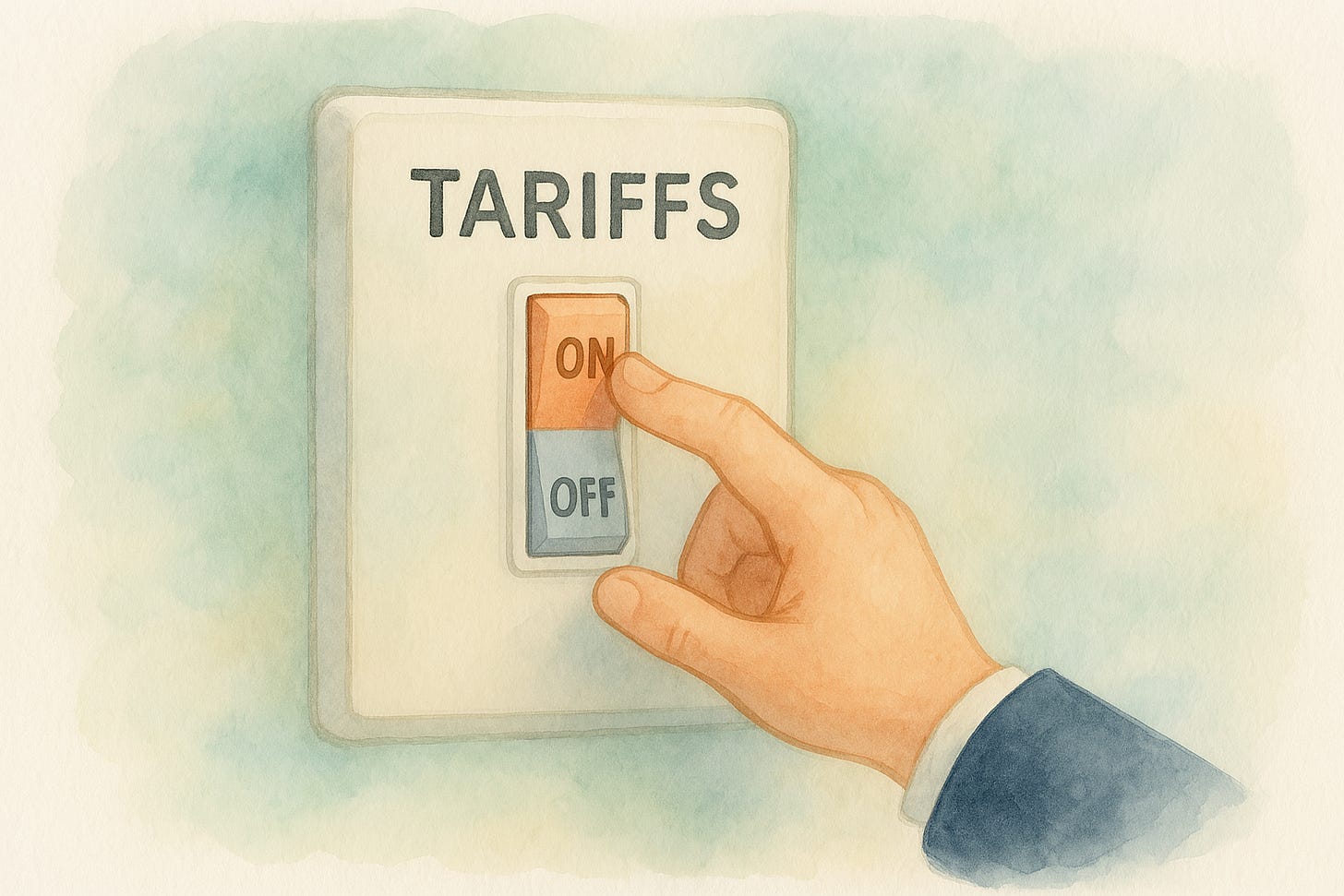The Hidden Economics of Trump’s Tariff Pause
What it means for your grocery bill, gadgets, and home projects.
On April 9, Donald Trump announced a 90-day pause on most U.S. tariffs, reducing rates to a 10% baseline for countries not imposing retaliatory tariffs. China was excluded—and tariffs on certain Chinese imports were raised as high as 125%, with some estimates suggesting total effective rates may exceed 145% when additional levies are included.
If that sounds confusing… it is. But the takeaway for everyday Americans is this:
The prices you pay—on food, phones, furniture, and more—could still swing in the months ahead, particularly for goods that rely heavily on imports. And the real risk isn’t what’s happening now, it’s what comes next.
💡 Hidden Insight
Even small shifts in trade policy can ripple through household budgets—especially when those shifts reverse overnight. From grocery prices to gadget upgrades, uncertainty is the new normal.
How to Navigate Tariff Turbulence: Seven Real-World Tips
1. Don’t wait on big electronics
If you're eyeing a new phone, laptop, or TV—especially one made in or with parts from China—consider buying sooner rather than later. The China exception means consumer electronics could get hit next. Retailers may delay price hikes through summer, but don’t count on it holding through fall.
2. Lock in renovation costs now
Tariffs on materials like lumber, tile, and fixtures may rise later this year, especially if retaliatory actions escalate or construction-related imports become a renewed target of trade policy. If you're planning a kitchen remodel or home repair this year, it may be smart to get quotes and schedule work before uncertainty returns.
3. Grocery bills: don’t expect miracles
Some imported food items—like olive oil, cheese, or wine—might see modest relief during the pause, but don’t expect broad grocery savings. Most prices are still driven by fuel, weather, and labor. If you regularly buy specialty imports, it may be worth stocking up now while tariffs are temporarily off the table.
4. Stay flexible on travel
If you're planning to book an international trip later this year, keep an eye on tariff headlines. Airfare costs and overseas vacation packages could fluctuate, particularly if trade tensions disrupt fuel markets, add tariffs to airline equipment, or trigger retaliatory travel restrictions.
5. Time your car purchase carefully
Imported vehicles and replacement parts are particularly sensitive to trade policy. Tariffs could drive up prices on foreign-made models, so if you’re planning to buy, monitor the headlines and consider locking in sooner if uncertainty increases.
6. Don’t chase deals—watch timing trends Prices may dip slightly this summer, but understanding seasonal pricing patterns can give you a real edge—especially in a volatile policy environment. Here are a few examples:
Electronics: Prices tend to spike in the fall due to back-to-school and holiday demand. If tariffs return, prices could rise even more.
Appliances: Discounts often appear in early winter as retailers make room for new models.
Outdoor furniture & grills: These often go on clearance in late summer and early fall.
Winter clothing: Usually goes on sale in late winter (January–February), after the holiday rush.
By recognizing seasonal price trends, you can prioritize the purchases most likely to spike and plan ahead for things your family will need in the next 6–9 months.
💡 Hidden Insight
In a flip-flop economy, flexibility may be your greatest financial strategy.
7. Buy American—if you can Products made and assembled in the U.S. are generally shielded from tariff swings. If you're choosing between options, going domestic might not only offer price stability—it could spare you a nasty surprise later.
Bottom Line: Trump’s Pause Is Temporary. Plan Accordingly
Trump’s tariff pause isn’t a rollback—it’s a brief window of calm in an otherwise unpredictable policy landscape. The smart move now is to take stock of your near-term needs, act early where it counts, and stay flexible enough to shift priorities if the rules change again.
Coming next: The Hidden Economics of Hotel Points — and why a Hilton point isn’t worth nearly as much as a Hyatt one.
Enjoyed this breakdown? Subscribe to Hidden Economics for real-world strategies to win at everyday money — delivered weekly. No spam. No noise. Just practical, helpful insights that make you smarter with money.


